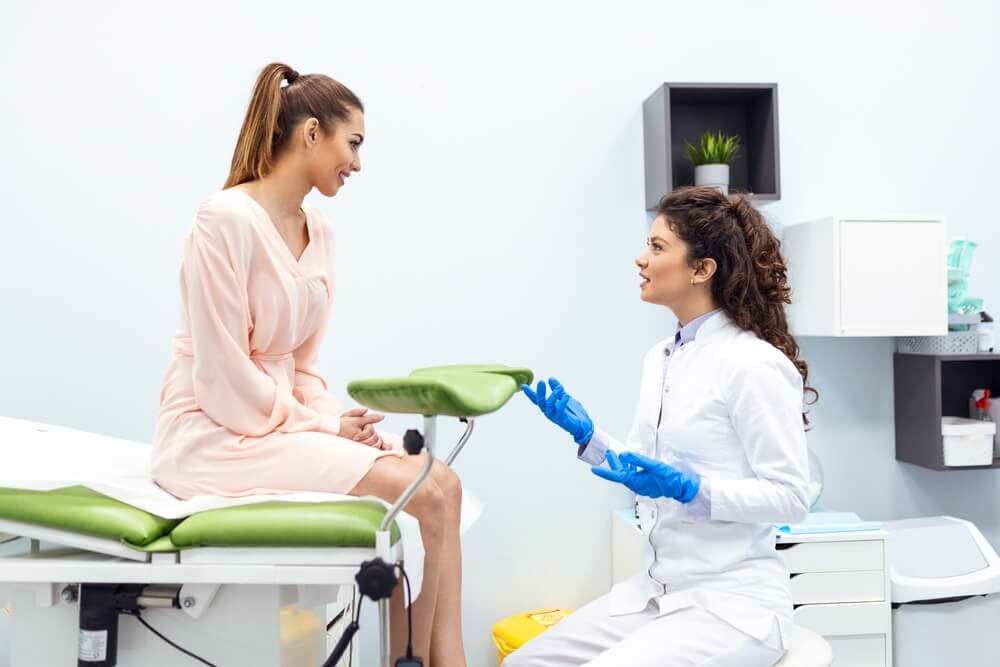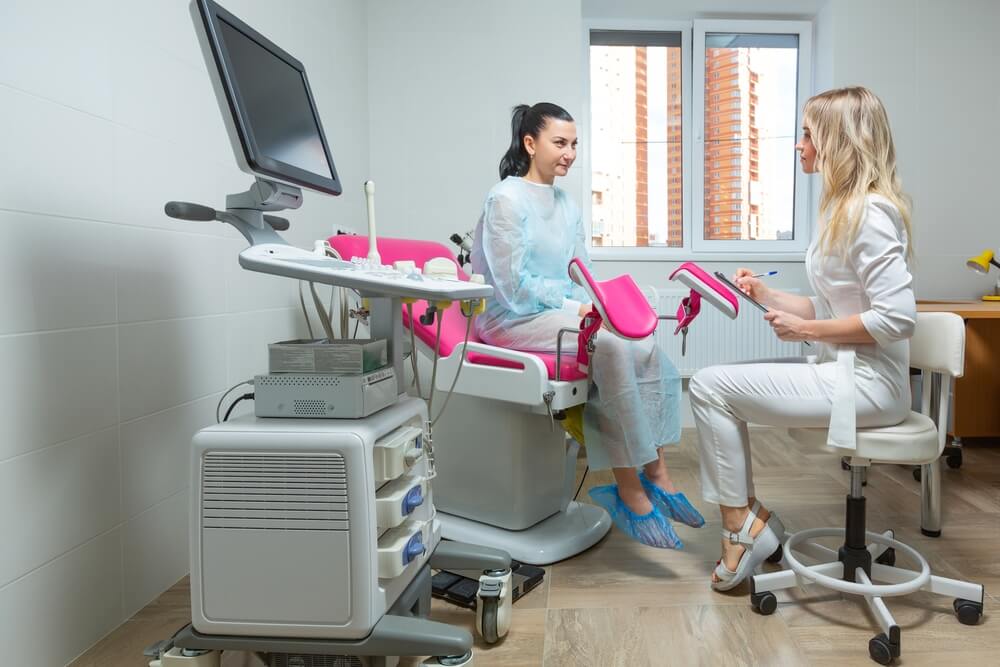Vaginal health serves as a vital aspect of overall women’s health and well-being. The topic, just like other elements of health, deserves dedicated attention. However, despite its importance, it is often shrouded in misconceptions or discussed in hushed tones. This secrecy can lead to confusion and improper care practices.
This comprehensive guide aims to remove the veil of ambiguity that surrounds vaginal health. It serves as a firm foundation, offering scientifically-backed insights into maintaining optimal vaginal health. Gynecology care in Loxahatchee, FL services are developing each day by learning about and implementing new techniques, so women can sustain a balanced vaginal microbiome, healthy vaginal PH, and good overall reproductive health.
If you request an appointment now at the Comprehensive OBGYN of the Palm Beaches our experts will address and debunk common misconceptions surrounding vaginal health for you. Many women carry misconceptions stemming from cultural stigmas or inadequate health education about vaginal health, contributing to practices that might result in long-lasting impacts. By dissolving these inaccuracies, you will also be able to promote a more open and informed conversation on this essential topic.
The Importance of Vaginal Health

Biological Role and Significance
Understanding the biological role and significance of the vagina underscores why it’s crucial to prioritize and maintain vaginal health. From a reproductive standpoint, vaginal health is instrumental in fertility and childbirth. A balanced vaginal microbiome and a healthy vaginal PH can help prevent reproductive health issues, minimize the risk of urinary tract infections, and maintain overall women’s reproductive health.
The vagina also plays a critical role in sexual health and pleasure. An optimally functioning vagina can enhance sexual experiences and also aid in preventing sexually transmitted infections.
Psychological Implications
The state of a woman’s vaginal health can significantly impact her self-confidence and overall psychological well-being. Just like any other health issue, problems such as yeast infection symptoms, bacterial vaginosis, or urinary tract infections can lead to stress and anxiety. This highlights the importance of regular sexual health screening, female hygiene practices, and a healthy diet including hormone-balancing foods for mental tranquility.
Vaginal dryness or recurrent infections can lead to discomfort during sexual intercourse, creating anxiety or relationship problems. Fortunately, several vaginal dryness remedies can help fight this common issue. Also, understanding the norms of vaginal discharge and seeking treatment when it deviates can lead to improved self-confidence and body positivity.
Social Implications
Socially, vaginal health often remains hidden behind a curtain of stigma and ignorance. This can lead to misinformation, wrong practices, and silent suffering among women. Although breaking societal norms can be challenging, it is steadily becoming necessary to foster open discussions about menstrual hygiene tips, preventing UTIs naturally, and other aspects of vaginal health.
This open dialogue can create a safer and more educated society, thereby reducing the taboo related to vaginal health.
By raising awareness of reproductive health and promoting comprehensive sexual education, we can empower women with the knowledge to maintain their health and refute the myths circulated in society. In conclusion, taking care of vaginal health has profound biological, psychological, and social implications, all of which underline the necessity of maintaining good vaginal health.
Practical Guides for Maintaining Vaginal Health
Regular Doctor’s Check-Ups
One cannot overemphasize the importance of regular doctor check-ups for a woman’s reproductive health. A gynecologist can advise you on maintaining a healthy vaginal pH, interpreting vaginal discharge normality, identifying yeast infection symptoms, providing bacterial vaginosis treatment, and sharing timely menstrual hygiene tips.
Choosing a gynecologist should be based on comfort, qualifications, and experience. It’s crucial to find a medical professional with whom you feel at ease discussing intimate health matters. Their role will be pivotal in your journey towards maintaining optimal vaginal health.
Regular screenings and Pap smears are also recommended as they can detect any abnormalities like cervical cancer and UTIs early. Discerning the frequency of these screenings will depend on various factors like your age, sexual activity, medical history, and the guidelines set by your healthcare provider.
Daily Practices and Hygiene
Proper daily practices and female hygiene practices play a vital role in vaginal health. The vagina is a self-cleaning organ and does not require meticulous internal cleaning; this understanding can help maintain a balanced vaginal microbiome. External cleansing, however, using mild, non-fragranced soap is good practice, ensuring dryness afterward to prevent breeding bacteria.
Your choice of clothing and underwear can also profoundly impact vaginal health. Loose, breathable clothing, particularly underwear made from cotton, is recommended to prevent trapping heat and moisture that could promote harmful bacterial growth.
Balanced Diet and Physical Activities
Your nutrition significantly affects your vaginal and reproductive health. A balanced diet, inclusive of a hormone balance diet, can bolster your immune system, maintain a healthy weight, and aid in preventing and combating infections. Probiotic-rich foods or supplements also contribute to a balanced vaginal microbiome.
Physical activity impacts vaginal health by improving blood circulation, strengthening the pelvic floor muscles, and enhancing overall well-being. Pelvic floor health is crucial in multiple ways, including preventing urinary incontinence and improving sexual function. Exercises like Kegels can specifically target and strengthen these muscles.
In conclusion, maintaining vaginal health demands a holistic approach encompassing regular medical appointments, healthy daily practices, a balanced diet, and regular physical exercise.
Understanding and Handling Vaginal Health Issues

Common Vaginal Health Problems and Diseases
Vaginal health issues can range from simple discomfort to significant medical conditions that can impact a woman’s reproductive health. Understanding these issues – knowing symptoms to watch out for, is critical to prevent complications or severe damage.
Common vaginal health problems include:
● Vaginal infections like bacterial vaginosis and yeast infections, both have similar symptoms like unusual vaginal discharge, itching, or irritation
● Sexually Transmitted Infections (STIs) and Pelvic Inflammatory Disease (PID) are other conditions of concern. Recognizing early symptoms such as pelvic pain, irregular bleeding, or unusual discharge can help in early detection and treatment.
● Urinary tract infections (UTIs) are quite prevalent too, characterized by a persistent urge to urinate, a burning sensation during urination, and cloudy urine.
Prevention Strategies
Preventing vaginal health problems often involves maintaining a healthy vaginal pH and a well-balanced vaginal microbiome. Basic female hygiene practices like maintaining cleanliness and wearing breathable clothing play a significant role. Proactive measures like sexual health screenings contribute to early detection of issues when treatment can be most effective.
Practicing safe sex is a crucial step in preventing sexually transmitted infections. Using condoms consistently and correctly and getting vaccinated for HPV can significantly minimize the risk. Taking preventive methods like urine voiding after sexual activity can aid in preventing UTIs naturally.
Treatment and Recovery
The treatment of vaginal health issues often depends on the nature of the problem. Bacterial vaginosis treatment usually includes antibiotics, while treatment for yeast infection symptoms often involves antifungal medicines. Most vaginal infections respond well to treatment, resulting in complete recovery.
For STIs and other more severe conditions, the course of treatment may be more extensive and can include medications, surgery, or other interventions. Regaining optimal health after a significant vaginal health issue often involves a recovery journey that can include medication adherence, lifestyle changes, and follow-up visits to the healthcare provider.
Through a holistic approach that combines awareness, prevention, effective treatment, and healthy lifestyle habits, women can navigate various vaginal health issues and maintain their overall wellbeing.
Final Thoughts on Vaginal Health
Over the course of this enlightening journey, the importance of staying consistently attentive to vaginal health has been emphatically highlighted. Every woman, irrespective of age or race, can benefit from understanding the intricacies of her body and the impact her lifestyle can have on her overall health, specifically vaginal health.
Being mindful of symptoms like those exhibited in yeast infections, acknowledging the significance of a healthy vaginal pH, and taking proactive steps in maintaining the vaginal microbiome balance, all contribute to assuring good health.
Preventing UTIs naturally, understanding the norms of vaginal discharge, and following menstrual hygiene tips are all equally significant. Not just that, a crucial part of paying attention to women’s reproductive health is regular sexual health screening. In the event of any issues, this ensures early detection and thereby, early initiation of treatment if necessary.
Beyond personal health practices, a seismic shift in our societal approach toward conversations related to vaginal health is required. The natural biological phenomena concerning women’s health, often shrouded in unnecessary stigma and mystery, require demystification. That can only happen if each one of us, as part of society, makes a conscious effort to promote open and healthy conversations about topics like these.
Let this comprehensive guide serve as a step in that direction. Let it propagate clarity, dispel misconceptions, and instigate informative discussions about vaginal health. The goal is not just to understand these topics ourselves but also to raise an informed and responsible future generation with comprehensive reproductive health awareness. For all additional questions schedule an appointment with our expert team and find out more!
Through this collective endeavor, one can hope to actualize a future where every woman feels equipped to make informed decisions about her health.


